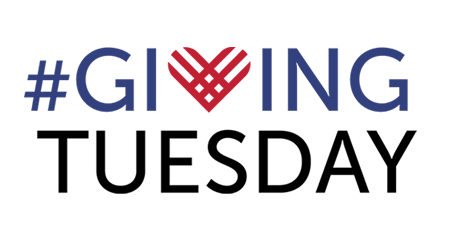 EDIT: Sooooo I posted this a whole week early. Giving Tuesday is November 28, not November 21. Adjust your donations accordingly!
EDIT: Sooooo I posted this a whole week early. Giving Tuesday is November 28, not November 21. Adjust your donations accordingly!
It’s Giving Tuesday tomorrow and I’m looking over my 2017 donations–trying to be both more focused and consistent as well as more aware of when and two whom I’m giving. I want to make sure I’m budgeting appropriately and adequately covering the organizations I want to give to. There’s also the odd appeal from a friend who’s doing a fundraiser for an organization I don’t normally support who has a special campaign or sometimes a solicitation directly from an organization will appeal to me–I want to be prepared when that happens, not only with a ready knowledge of how much I can give but whether it will mean not making another donation. Whether I’ve supported that place in the past.
My monthly giving goes to:
- Greater Chicago Food Depository
- Medical Students for Choice
- Planned Parenthood Action Fund
- Southern Poverty Law Center
My structured annual giving (often in the form of memberships or Christmas presents) goes to:
- Art Institute of Chicago
- Chicago Foundation for Women, LBTQ Giving Council
- Chicago History Museum
- Chicago Shakespeare Theatre
- Howard Brown Health
- Illinois Coalition on Immigrant and Refugee Rights
- National Women’s Law Center
- Nettlehorst Elementary
My scattershot donations usually include (among others):
- AG47
- Center on Halsted
- CHIRP radio
- Domestic Violence Legal Center
- PAWS Chicago
- Transgender Law Center
I also give to a breast cancer walk a friend does every year, and usually to one or more suicide helplines, some political organizations, and a bunch of places I’m probably not remembering because it’s random. Which is the reason I decided to look at things this year. Already, in pulling together the monthly or annual gifts, I see that I’m not reaching my philanthropy goal and I see some gaps. But I never see any gift I regret, even when I see gifts I never repeat.
There may not seem a common theme (although I think there is) among the groups on my list, but there is a very common foundation in these choices–they are connected to my friends. They are groups my friends support, or work with, or volunteer with, or which serve (or have served) their needs. And we talk about our philanthropy together; we volunteer together; we ask for donations to celebrate our milestones.
And every year when my friends and family give to the nonprofit where I work, I am really grateful–not just because we get to keep the lights on for another year or expand our court reform programs–but because I know such generous people. I am so impressed with the thoughtfulness of my friends and their willingness to engage with the needs of their community through philanthropy and through volunteering.

Some of the folks I am talking about
And I never mind when I see their fundraising posts. I never mind when we collect donations for a cause at a pub. There is so much need in our community and such a lack of political will to provide for those needs through our government. All sorts of needs: food, shelter, medical care, but also medical research or job services or youth development or arts. All the things that make us whole. I love that my friends–who help keep me whole–step up to meet when these needs when society fails to.
Giving Tuesday is about joining together when we give. It’s about sharing our motivations, our goals, and our community in giving.
===
This year I’m also trying to figure out where to donate in honor of my Dad at Christmas. Veterans’ charities have terrible reputations on the whole–I have no idea why this is. A friend suggested a couple which his workplace supports: Vets in Tech, Team Rubicon and Operation Homefront; perhaps I’ll chose one of them. But maybe I’ll look for a scholarship fund, though I think he’d also appreciate a lake and river preservation effort.

 I work at a four-person 501(c)(3) court reform organization, as an attorney. The organization cannot offer a retirement plan. Even with the ACA, it is unable to afford platinum health insurance plans and no dental or vision plans. PSLF and income-based repayment are the only reason I am able to save for retirement on my own. I have invested in myself and relied upon the promise of loan forgiveness in choosing a career that allows me to invest in my city. Please tell me you will stand up for me and others who have done the same.
I work at a four-person 501(c)(3) court reform organization, as an attorney. The organization cannot offer a retirement plan. Even with the ACA, it is unable to afford platinum health insurance plans and no dental or vision plans. PSLF and income-based repayment are the only reason I am able to save for retirement on my own. I have invested in myself and relied upon the promise of loan forgiveness in choosing a career that allows me to invest in my city. Please tell me you will stand up for me and others who have done the same. It’s Giving Tuesday.
It’s Giving Tuesday. It’s Giving Tuesday.
It’s Giving Tuesday.
